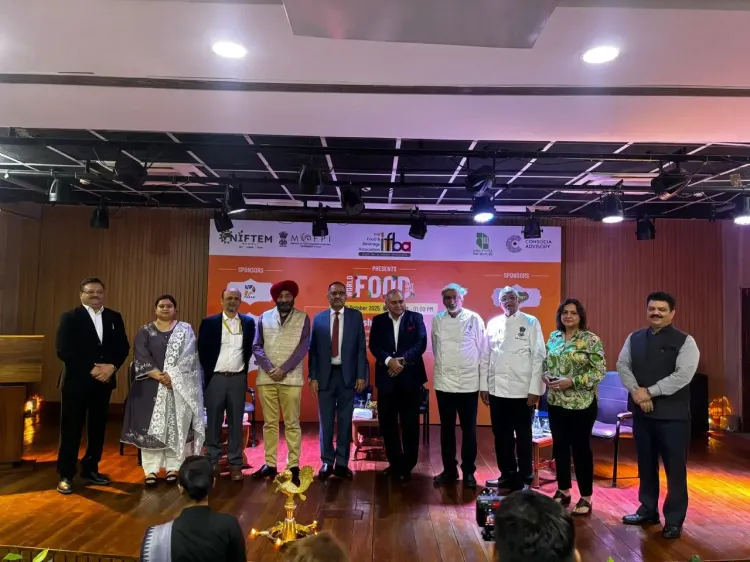Is Food Safety Really a Shared Responsibility? Public Awareness is Key!

Synopsis
Key Takeaways
- Food safety is a shared responsibility.
- Public awareness is crucial for informed food choices.
- Collaboration among stakeholders promotes food safety.
- Science-based education combats food myths.
- Processed foods offer convenience but are often misunderstood.
New Delhi, Oct 17 (NationPress) Food safety is a collective obligation and should be fostered through public awareness, affirmed government representatives, who also emphasized the importance of addressing food-related misconceptions and enhancing food literacy.
During an event in the national capital commemorating World Food Day 2025, policymakers, industry experts, food scientists, and academics highlighted the pressing need for scientifically-backed food education amid a landscape filled with conflicting messages and digital disinformation.
“Food safety is a shared duty that transcends mere regulatory measures to include public awareness. We endorse efforts that utilize scientific dialogue to dispel myths and encourage responsible food decisions,” stated Satyen Kumar Panda, Executive Director (Regulatory Compliance) and Advisor (Quality Assurance), FSSAI.
“Cooperation between academia, industry, and government is essential for nurturing a culture of food safety and nutritional integrity,” he added.
The event was co-hosted by the National Institute of Food Technology, Entrepreneurship and Management (NIFTEM-Kundli) and the Institute of Hotel Management, Catering and Nutrition (IHM-Delhi).
The program featured panel discussions aimed at clarifying misconceptions regarding palm oil, A1/A2 ghee, protein supplements, and processed foods.
A key highlight was the announcement of an upcoming report by the International Food & Beverage Alliance (IFBA), intended to debunk enduring myths related to palm oil.
This report will provide evidence-based insights into the role of palm oil in nutrition, sustainability, and food production, aiming to foster more informed consumer choices and policy decisions.
“In today’s rapid-paced environment, processed foods deliver unparalleled convenience, whether in the form of ready-to-eat meals, frozen snacks, or canned goods, assisting individuals in efficiently managing their time and nutritional needs. However, despite the sector's crucial role in ensuring food safety and accessibility, public perception is often swayed by misinformation and media-driven myths,” remarked Avinash Joshi, Secretary of the Ministry of Food Processing Industries.
In light of this, the Ministry has recently published a FAQ guide on processed foods, specifically focusing on ultra-processed foods (UPFs) and high-fat, salt, and sugar (HFSS) foods to disseminate science-based knowledge and evidence on the topic.









